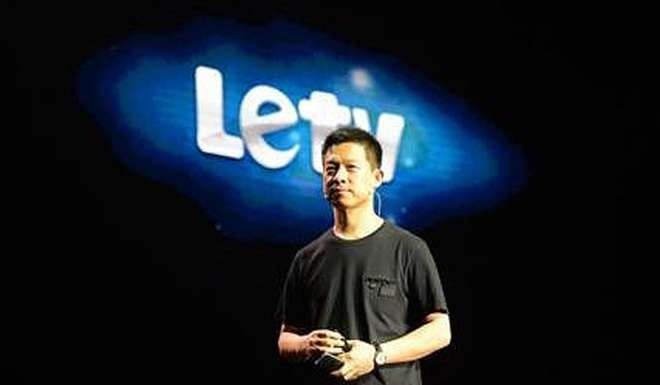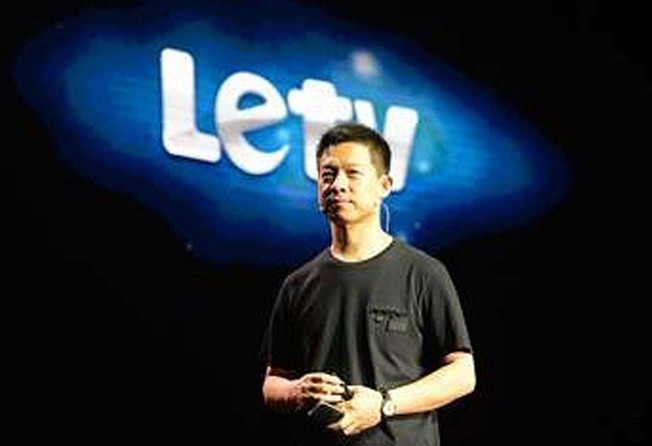
PowerPoint business model leaves LeEco cash-strapped
The company burned through 50 billion yuan in six years, while profitability remains elusive

The cash crunch that brought Jia Yueting down to earth and wiped 14 billion yuan (US$2 billion) off his companies’ value is rooted in his business model, which relies on buzz to generate financing, rather than market-leading products that earn revenue, analysts said.
Jia’s LeEco Group, a 12-year-old video streaming company with interconnected units that nourish each other, produces smartphones, flat-screen television sets, video dramas and even self-driving sports cars. That’s made Jia, 43, into a billionaire, and turned him into the poster boy of China’s so-called New Economy, where disruptions of conventional business wisdom is highly sought after.

“There’s something we call the PowerPoint Business Model that thrives in China, where entrepreneurs disrupt the conventions of doing business by telling fancy stories and painting rosy prospects,” said Guotai Junan Securities’ senior analyst Ray Zhao.
LeEco has raised more than 50 billion yuan in capital since 2010, through both Jia’s listed and privately held companies on mainland China’s capital markets, according to Shanghai Wind Information Co.’s data.
His fundraising gained pace in 2012, when Jia transformed Leshi’s video streaming service into a web of business units spanning entertainment, cloud computing, financial technology, smart devices, and self-driving electric sports cars. The group holding company was renamed LeEco, in a nod to the ecosystem.

In 2013, Jia’s Leshi stake was valued at 14 billion yuan, making him the richest entrepreneur on the ChiNext Board.
LeEco acquired US television manufacturer Vizio for US$2 billion in August to expand into North America. It has also made huge investments in electric cars, both under its own brand LeSee and in partnership with US carmaker Faraday Future.
Prospects took on Beijing’s smoggy hues on Monday, when Jia told shareholders that his company “could die on the road to success,” amid media reports of a cash crunch and payment defaults to suppliers.
In a sense, LeEco may be a victim of Jia’s rush to expand, before he could establish a rich income source, unlike bigger Internet companies including Goggle, Alibaba and Tencent, all of which rely on steady earnings from search, e-commerce or online gaming to finance their range of businesses.
It’s also more than just cash, as all these companies also have loyal customers who can be migrated to support the new business, Zhao said.
“LeEco is different in that it’s trying to suck up capital and resources first to occupy the market, and that’s proving to be very dangerous,” he said.

Jia seems to acknowledge as much.
“We blindly sped ahead, and our cash demand ballooned,” Jia said in a memo. “We got over-extended in our global strategy. At the same time, our capital and resources were in fact limited.”
After the comment, Leshi’s shares fell 7 per cent in Shenzhen, while shares of Coolpad Group Ltd., a smartphine maker, tumbled as much as 25 per cent in Hong Kong.
Worse still, Jia and his brother Jia Yuemin pledged more than 84 per cent of their combined holdings in Leshi as collateral for more than 10 billion yuan of loans, according to Wind. Any decline in Leshi’s share price could trigger a margin call on their credits and exacerbate their financial woes.
Leshi’s 2015 sales rose almost 91 per cent to 13.02 billion yuan, while net profit rose 57.4 per cent to 573.03 million yuan. Coolpad reported HK$14.67 billion in 2015 revenue, and HK$347.96 million in net income.
While Leshi and Coolpad are earning cash, the overall company “is still on thin ice because Jia has created a behemoth that craves for cash every day,” said Guotai’s Zhao. “The income it generate is limited, and investors are now suspicious and few of them are willing to keep putting in cash.”

LeSee, Jia’s self-driving electric car, required 10 billion yuan of investments, Jia said this week.
The car unit in September raised more than US$1.08 billion from a consortium of Chinese investors.
LeSports, which provides video streaming of sports programmes, raised 8.8 billion yuan including 800 million yuan from investors like Wanda Group and Jack Ma’s private equity fund Yunfeng Capital. The company’s loss ballooned to 569 million yuan in the first 11 months of 2015, from a loss of 139 million yuan in 2014, according to a report by Tencent Tech.
“The automotive business and the broadcast rights of top-ranking sports events including NBA games and European soccer matches are burning a lot of cash,” said Zhao. “LeEco does not have a consumer base big enough to feed the business.”
Time may be running out for Jia, as Leshi has 930 million yuan of bonds due in 2018, while Coolpad has 729 million yuan of debt due next year, according to Bloomberg data.
“It looks like LeEco has squeezed out the last penny from Jia’s story,” said Zhao, whose brokerage recommends clients to “sell” Coolpad. “There will be a critical point when investors no longer trust him, and now it seems likely.”

